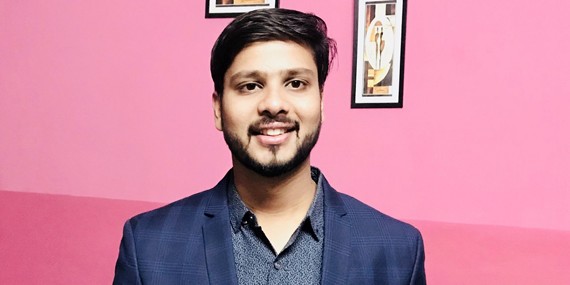Anuj Gupta, the business lead at AutoVRse is in favor of instilling No Sir No Madam ideologies into Indians. AutoVRse is an interactive virtual reality experience that empowers customers to explore and customize their cars in real time. It can be installed at any showroom, kiosk, or exhibit.
He has graduated from the esteemed Birla Institute of Technology and Science, Pilani campus, as a bachelor of engineer. In addition, he has even received his master’s degree in biological sciences from the same Institute. Anuj, along with his friends and college peers co-founded AutoVRse, with the intention to bring technological innovation to the automotive industry.
Anuj mentions, “At AutoVRse, we follow No Sir No Madam doctrine. Our team comprises friends; hence, there was never a need to instill first-name culture consciously. We have always addressed each other on a first-name basis.
I personally feel that communicating with colleagues at the workplace, enhances the communication chain. It enables you to converse and bond easily with your fellow-workers. Whereas, ‘Sir/Madam’ culture creates a kind of barrier for two people to correspond freely.”
In addition, he shares his first-job experience, where they followed No Sir No Madam custom. He states — I was working in Citi bank, when I first started my career. I was fortunate that they adhered to first-name habit. We would address the director without pronouns. This genial culture enabled us to work independently, as there was no authority being imposed on us.”
Today, a lot of MNCs have adopted no-salutation edict to make the office environment less exasperating. On the other hand, public sector organizations remain relentless to any form of restructuring.
Anuj shares his experience, when he met with executives from a public sector company for his startup purpose. He enunciates, “We could notice the difference in the way seniors and juniors communicated with each other. Even while communicating with the employees of that company, we would feel more comfortable while interacting with the junior employees.”
Additionally, since there was a huge communication channel, the work got delayed as compared to companies that follow hierarchy-free culture. The firm practiced ‘Sir/Madam’ tradition and subsequently, Anuj too had to refer the managers as ‘Sir/Madam’. Moreover, he could notice how tense the junior employees got once their seniors walked into the room.
Similarly, along with public companies, government sector strictly heeds to ‘Sir/Madam’ convention. “I remember when I visited a public bank for an education loan. My father accompanied me on our first visit to the bank. I noticed that the officials were polite and paid attention to our work as my father spoke to them.
However, the next few times, I visited the bank alone. Being young, the bank officers ignored me and made me wait for two hours before I lost my patience. They continued to ignore me, despite notifying them to acknowledge my work. Eventually, I had to plead and refer them with a salutation, after which they finally considered my work.”
Likewise, many people go through such situations daily. Anuj opines that it is imperative to educate public officers regarding the ill-effects of ‘Sir/Madam’ culture. Especially to the older generation as they perceive first-name greeting as a sign of disrespect.
In India, people are judged on the basis of their job and wealth. This has created a hierarchical gap within the society which keeps on increasing. In a time, when we should be working towards lessening the differences, we are further increasing the divide within our society.
Therefore, Anuj suggests — we should free blue-collar workers off salutation decree and the taboos it carries along. Everyone, in his or her power, can inform others to follow No Sir No Madam custom, every time they use ‘Sir/Madam’.
In the same way, we ought to stop putting people on the pedestal by referring them with a salutation. Once you address someone as ‘Sir/Madam’, you are indicating that you do not deserve to be respected and that the other person is superior to you.
Anuj winds-up his words by urging everyone to treat each other with same respect they hold for themselves.







Add comment